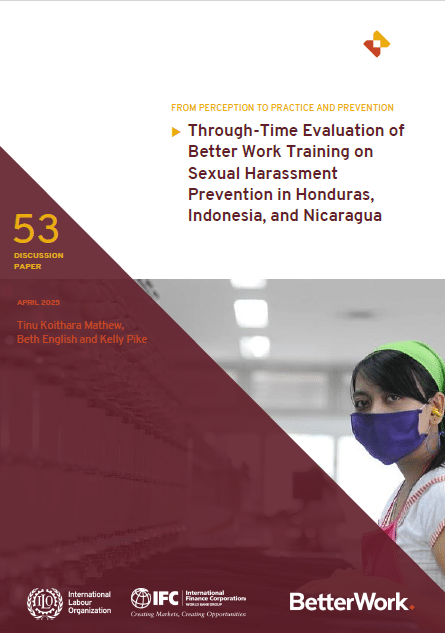Sexual harassment remains a pervasive issue in workplaces globally, with the ILO-Gallup Survey (2022) estimating that 205 million workers—predominantly women—have experienced it at least once. The COVID-19 pandemic has further exacerbated gender-based violence. Better Work (BW) has responded through targeted sexual harassment prevention (SHP) training programs across nine of its thirteen country operations. This study evaluates the ongoing impacts of these trainings in Indonesia and Nicaragua, and initial implementation in Honduras, as part of a broader multi-country assessment.
Findings, drawn from qualitative interviews, focus groups, and surveys, show a deepening awareness of sexual harassment, improved understanding of reporting mechanisms, and shifting attitudes toward respectful workplace behaviors. Nicaragua exhibits strong engagement and peer support; Indonesia highlights the importance of continuity and local champions; and Honduras, though early in implementation, shows emerging awareness.
The study underscores that continuity, trust-building, and evolving training content are critical to program success. BW’s initiatives are contributing to meaningful behaviour change, helping to foster safer, more inclusive workplaces, and positively influencing norms beyond the factory floor.
